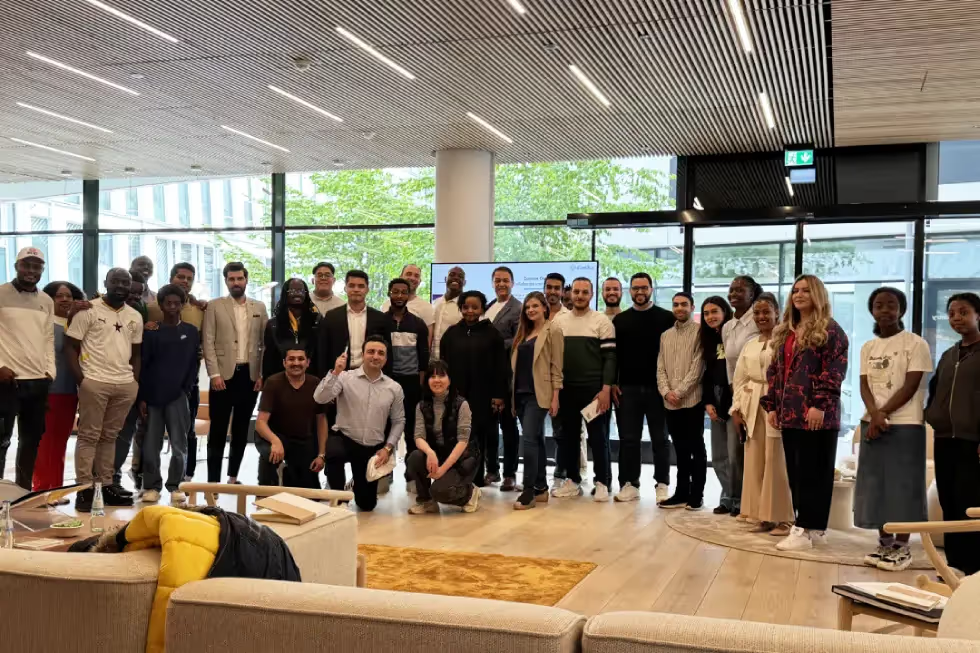Germany is a popular destination for international students and expats, with the Indian community forming a significant portion. How does their integration experience compare to others?
This article explores how well Indian students and expats are integrating into German society. The data is drawn from our comprehensive study on the integration of internationals in Germany.
About the Study
From July to September 2022, we asked our customer base about their integration experiences in Germany. A total of 9,106 international students and expats from 126 countries, shared insights on integrating in Germany, offering valuable information for internationals.
From this study, we have derived data specific to Indian internationals in Germany and their integration journey.
Demographics

According to the study, the average Indian international is male and moved to Germany aged between 18 and 25. Only a quarter of the Indian respondents were female. Nearly 30% of the respondents were between 26 and 35 at the time they moved to Germany.
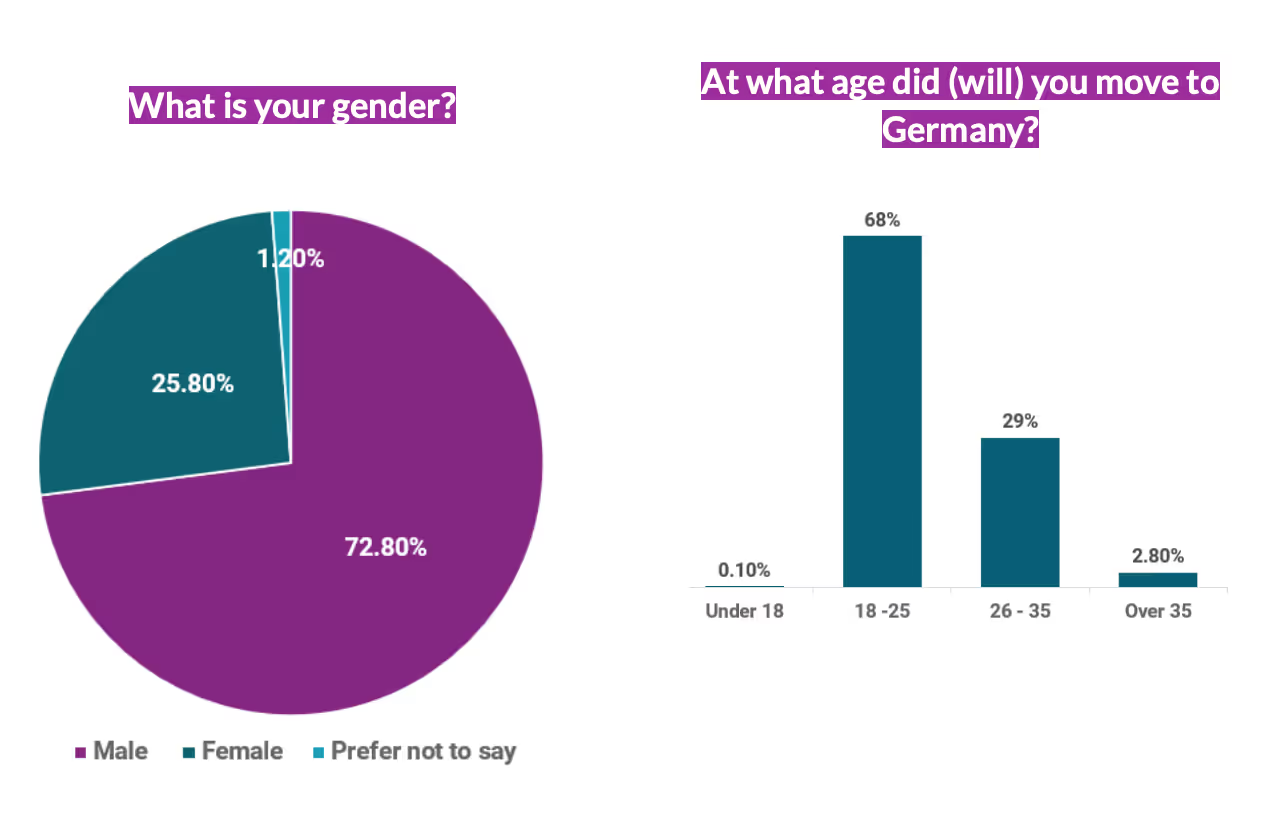
Who Guided Indian Students and Expats on Their Way to Germany?
More than half of Indian students and expats moved to Germany without any help and organised everything by themselves. Friends or family guided almost a third, while 11% received support from a study abroad consultant.
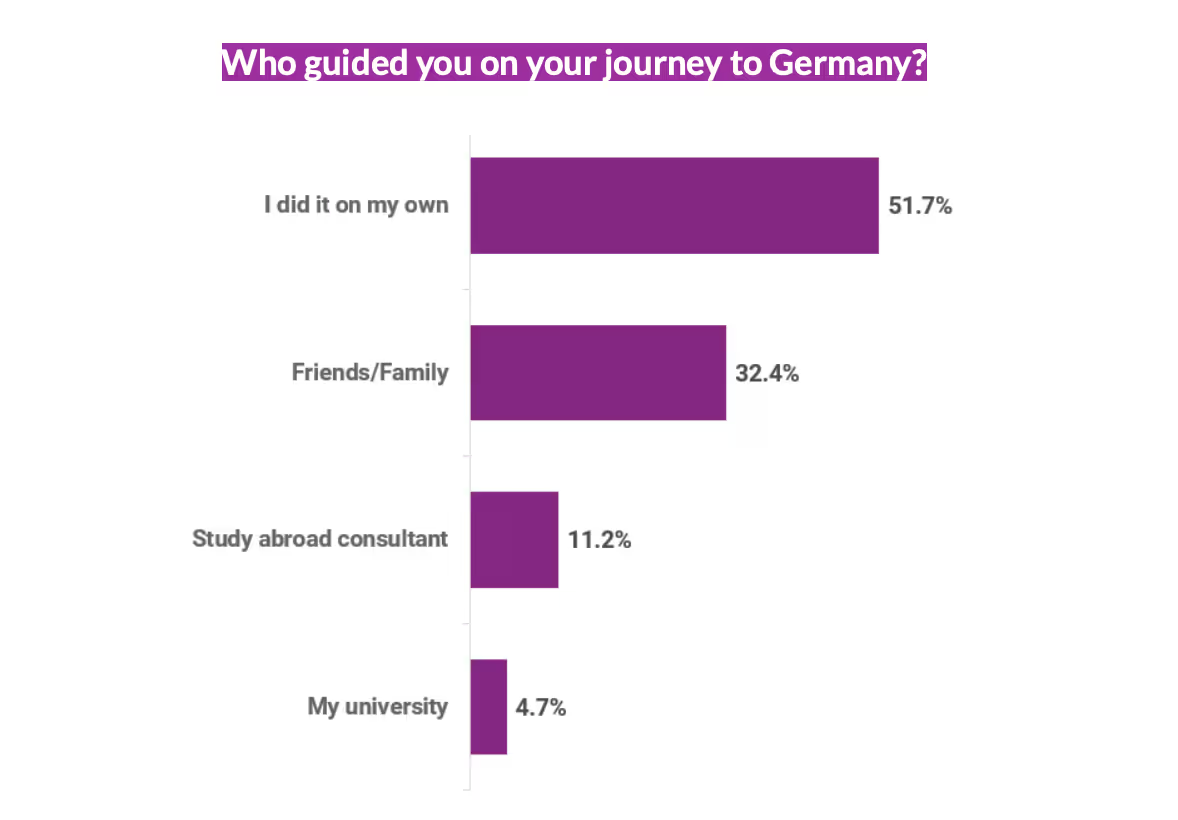
Integration Among Indian Students and Expats in Germany
Respondents were asked to rate how well integrated they felt in Germany on a scale from 1 to 10. Only 5% of the Indian respondents felt they were “not well integrated” (1-3), while more than half felt “somewhat integrated” (4-7). 40% of Indian students and expats felt “very well integrated” (8-10).
This is much higher than the 32% of all respondents from the general study, who felt “very well integrated”. On average, Indian students and expats seem to experience a higher perception of integration in comparison to other internationals.
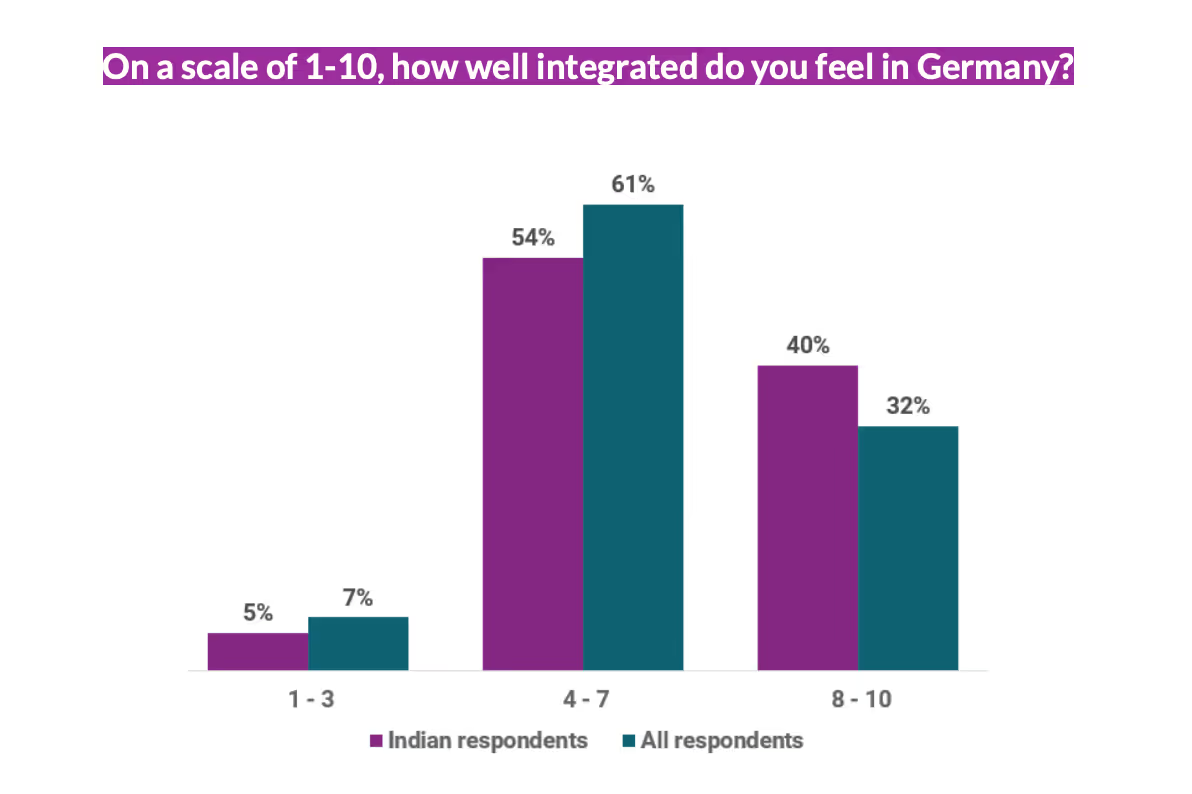
Learning German as a Step to Integration
On average, Indian respondents seem to have lower German language skills in comparison to their counterparts from other countries. 12% of the Indian students and expats did not speak German yet, while 60% had beginner A1-A2 German skills.
A quarter of Indian respondents were skilled with B1-B2 German language level. This is a lower figure in comparison to the general data. Only 4% held a C1-C2 German language certificate. This is a significant drop from the 17% reported by the total number of respondents.

Participation in Extracurricular Activities
Indian students in Germany appear to take more advantage of extracurricular activitiesoffered by their universities. Slightly more than half of the respondents reported to have participated in extracurricular activities. This is a 10% increase in comparison to the general data.
Participating in extracurricular activities gives students the chance to acquire new skills and establish new connections. Therefore, one can consider it as one of the most readily accessible opportunities for integration.

Post-Study Decisions, Career Plans and Job Search Experiences
The study indicates that Indian students are more likely to stay in Germany after graduation. Nearly 70% reported that they intend to stay in Germany, while 30% were unsure. Only 4% did not plan on extending their stay in Germany after completing their studies.
In correspondence, Indian respondents showed more readiness to start a career in Germany after their studies. 80% of Indian students planned to purse a career in Germany, when 18% had not decided yet. Merely 2% of the respondents had no intention of starting a career in Germany.

More than 80% of Indian respondents said they felt “very prepared” to “somewhat prepared” to start a career in Germany. The general study shows that international students who feel more integrated are better prepared to start working in Germany.
Reasons for this include the ability to communicate effectively in German and a better understanding of German culture. An additional measure international students could take to prepare themselves is to network during their time in university. Options include attending job fairs and career events as well as doing internships during semester breaks.
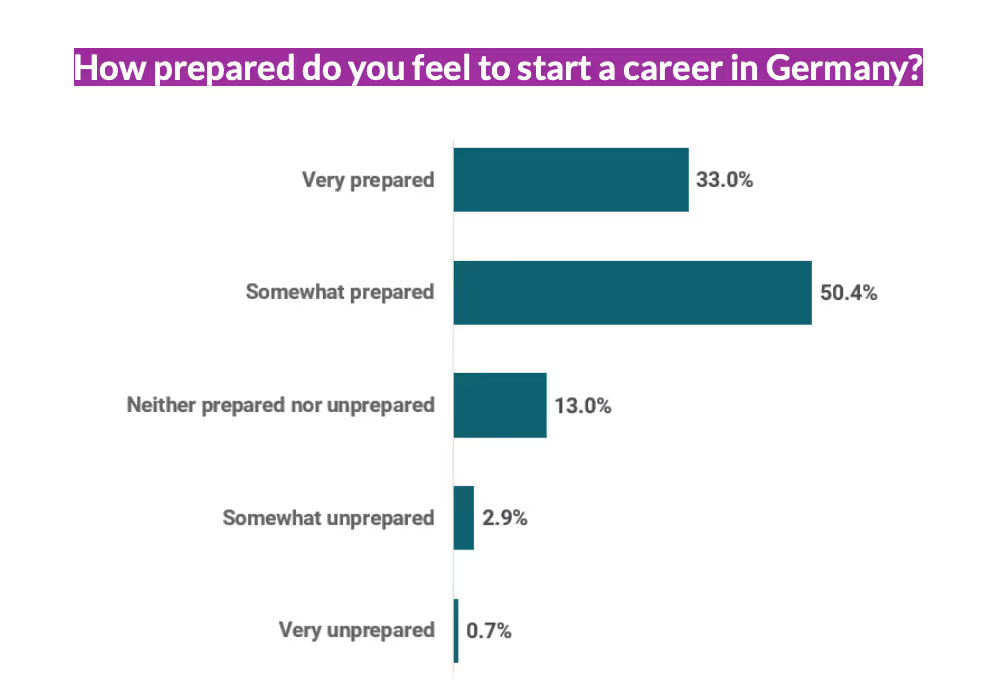
Majority of Indian respondents felt prepared to start a career in Germany. However, nearly 40% of them found the job search process in Germany “moderately difficult” to “very difficult”. A further 40% said their experience looking for employment in Germany was neither easy nor difficult. Around 20% defined their job search experience as “moderately easy” to “very easy”.
Joining an Indian student association could help Indian students in Germany in their job search by providing access to resources such as career counseling and resume workshops. Student association often also offer a platform for networking with professionals and finding potential internship opportunities.
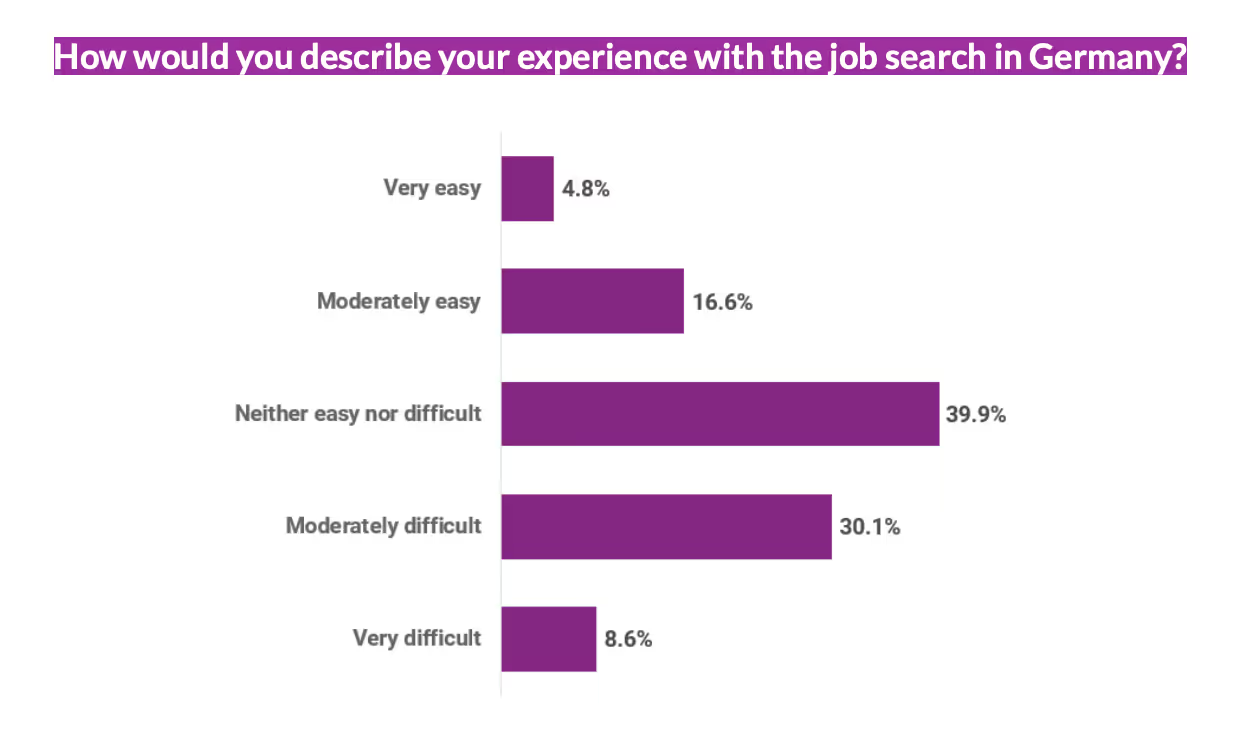
Read more findings and recommendations from the general survey here.
Get Fintiba Plus Today
Fintiba Plus is everything you need for your Opportunity Card or Job Seeker Visa in Germany — fast, simple, and reliable.
News & Stories from Fintiba
Discover our latest developments, company milestones, and insights from our team. From product updates to industry news and community stories.





